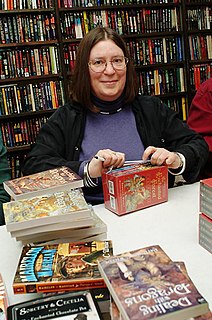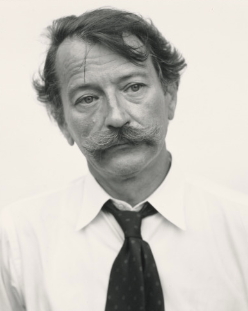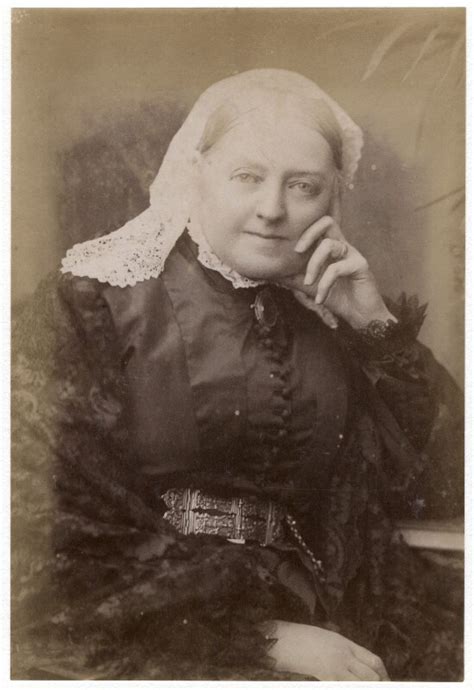A Quote by Dalai Lama
We can't blame the entire Muslim society because of the mischievous acts of a few individuals. Therefore, at the general public level we must cultivate the notion of not just one religion, one truth, but pluralism and many truths. We can change the atmosphere, and we can modify certain ways of thinking.
Related Quotes
There are, besides, eternal truths, such as Freedom, , etc., that are common to all states of society. But Communism abolishes eternal truths, it abolishes all religion, and all morality, instead of constituting them on a new basis; it therefore acts in contradiction to all past historical experience.
This is the most important lesson you must learn about magic," Miss Ochiba went on. "There are many ways of seeing. Each has an element of truth, but none is the whole truth. If you limit yourselves to one way of seeing, one truth, you will limit your power. You will also place limits on the kinds of spells you can cast, as well as their strength. To be a good magician, you must see in many ways. You must be flexible. You must be willing to learn from different sources. And you must always remember that the truths you see are incomplete.
Everyone has his own truths and every such truth corresponds to a particular intelligence or consciousness level. If some religious absurdities are your truths, then you must increase your level to approach to the real truth! At the position of low level intelligence and consciousness, it is impossible to see the real truth!
But before any great things are accomplished, a memorable change must be made in the system of Education and knowledge must become so general as to raise the lower ranks of Society nearer to the higher. The Education of a Nation, instead of being confined to a few schools & Universities, for the instruction of the few, must become the National Care and expence, for the information of the Many.
Talking about creating truth tends to alarm people, because truth is meant to be 'just out there'. It doesn't take much thinking to appreciate that we sometimes change truths on the ground - sometimes just by words. A new law will change what is possible. I think - perhaps because the paradigm we follow tends to be scientific, and all about discovery - the creative element of truth is one upon which we don't focus so much attention. This is particularly so in anglophone philosophy, perhaps because we associate it too much with those 'pernicious' continental trends.
Interest in religion is not necessarily interest in God. Religion in public life means a set of ideas, an ideology that has certain positions. Religion is then one more ideology among others. Religion is about God. Religion begins with a relationship to God, not a relationship to an idea. It is God who is an actor, not just individuals who have certain beliefs who are actors. God is an actor.
Underneath all his writing there is the settled determination to use certain words, to take certain attitudes, to produce a certain atmosphere; what he is seeing or thinking or feeling has hardly any influence on the way he writes. The reader can reply, ironically, "That's what it means to have a style"; but few people have so much of one, or one so obdurate that you can say of it, "It is a style that no subject can change.
In some places, there's the concept of one religion, one truth. In the Muslim world, there's the notion of Allah. The Western, multireligious modern society is some kind of a challenge to this. These, I feel, are the main causes [for terrorism], and, when combined with lots of anger and frustration, cause a huge amount of hate.
The need to speak the truth and even to seek it for oneself is only conceivable in so far as the individual thinks and acts as one of a society, and not of any society (for it is just the constraining relations between superior and inferior that often drive the latter to prevarication) but of a society founded on reciprocity and mutual respect, and therefore on cooperation.
Let every one of us cultivate, in every word that issues from our mouth, absolute truth. I say cultivate, because to very few people - as may be noticed of most young children - does truth, this rigid, literal veracity, come by nature. To many, even who love it and prize it dearly in others, it comes only after the self-control, watchfulness, and bitter experience of years.
The more Adams thought about the future of his country, the more convinced he became that it rested on education. Before any great things are accomplished, he wrote to a correspondent, a memorable change must be made in the system of education and knowledge must become so general as to raise the lower ranks of society nearer to the higher. The education of a nation instead of being confined to a few schools and universities for the instruction of the few, must become the national care and expense for the formation of the many.







































